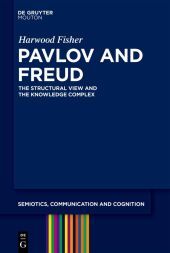
Pavlov and Freud
The Structural View and the Knowledge Complex
Sorozatcím: Semiotics, Communication and Cognition [SCC]; 32;
- Kiadói listaár EUR 139.95
-
58 044 Ft (55 280 Ft + 5% áfa)
Az ár azért becsült, mert a rendelés pillanatában nem lehet pontosan tudni, hogy a beérkezéskor milyen lesz a forint árfolyama az adott termék eredeti devizájához képest. Ha a forint romlana, kissé többet, ha javulna, kissé kevesebbet kell majd fizetnie.
58 044 Ft

Beszerezhetőség
Csak rendelésre kapható a kiadónál, kissé időigényes.
Why don't you give exact delivery time?
A beszerzés időigényét az eddigi tapasztalatokra alapozva adjuk meg. Azért becsült, mert a terméket külföldről hozzuk be, így a kiadó kiszolgálásának pillanatnyi gyorsaságától is függ. A megadottnál gyorsabb és lassabb szállítás is elképzelhető, de mindent megteszünk, hogy Ön a lehető leghamarabb jusson hozzá a termékhez.
A termék adatai:
- Kiadó De Gruyter
- Megjelenés dátuma 2025. január 1.
- ISBN 9783110785418
- Kötéstípus Keménykötés
- Terjedelem400 oldal
- Méret 230x155 mm
- Nyelv angol
- Illusztrációk 10 b/w and 3 col. ill. 625
Kategóriák
Hosszú leírás:
Freud focuses the 'psyche' cut from neurological phenomena. Pavlov focuses the observable, proposing its relation with the neurological. Freud versus Pavlov? This book reveals their shared ways of thinking, basic concepts of mind, psychopathology, and their representations despite apparent oppositions. Both Freud and Pavlov advance a psychological theory of mental pathology. Their common overall conception is totally under-analyzed. Each represents multiple levels of thought, necessitating semiotic latitude and its analysis. Peirce's basic concepts of mind, thought, and representation augur a systems approach, synthesizing the two theorists' views, re-conceiving their oppositions. A structural view emerges, making psychological phenomena accessible to logical form, schema patterning, and dynamic change. Both theorists picture the sequencing and logical identity of terms governing thought. Freud follows the defense, reaction formation and its twists of logic. Pavlov conceptualizes the illogical ultra-paradoxical reaction, referring it to inter sub-system sequences. Both make marked use of negation in needed representation changes. The different signs require semiotic analysis specifying logical, if not computable interrelations. The result-a knowledge complex encompassing neurological and psychological variables- has implications for those who study, research, and treat mental pathology in psychology, cognitive semiotics, cognitive science, and AI.
Több



